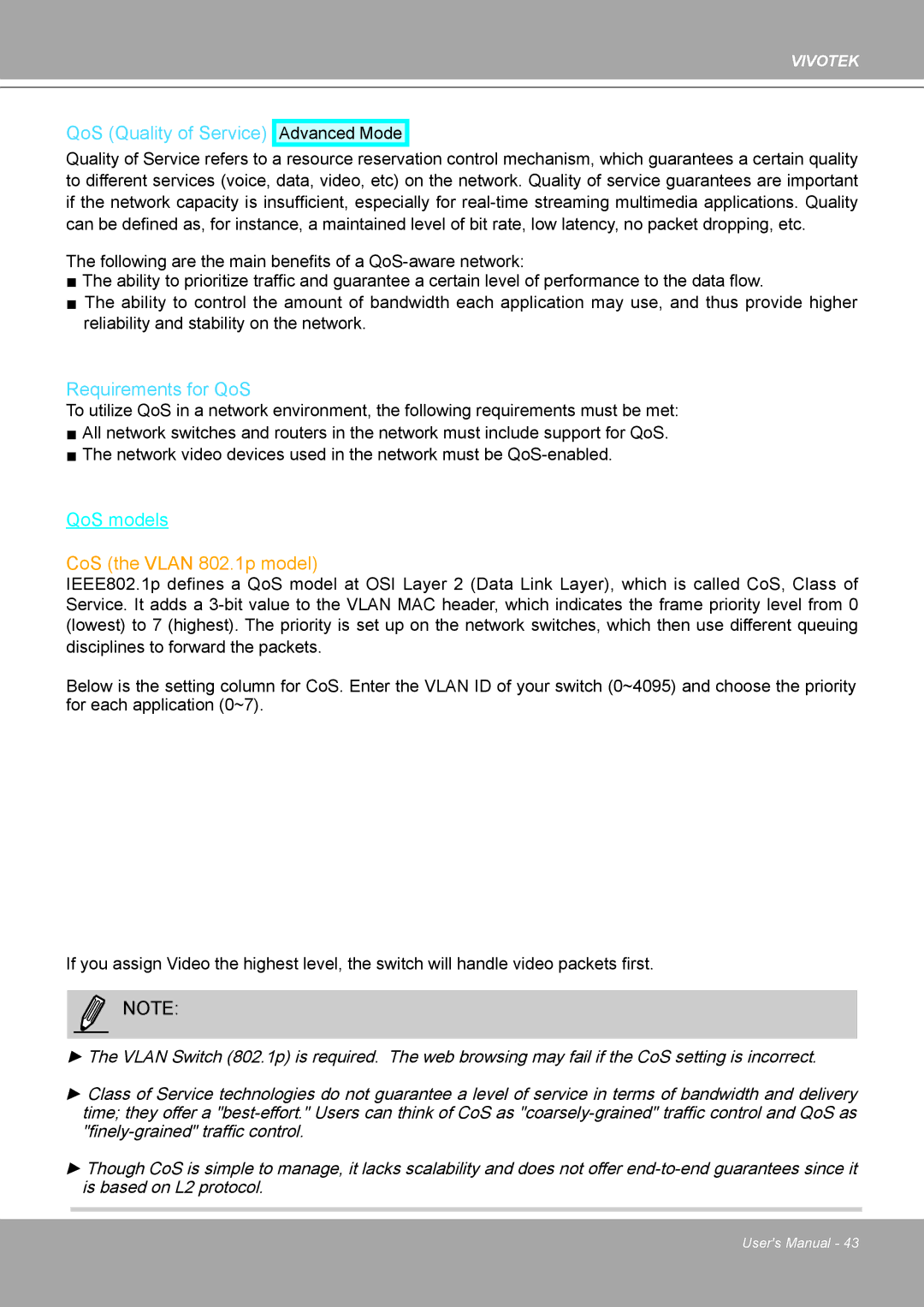
VIVOTEK
QoS (Quality of Service)
Advanced Mode
Quality of Service refers to a resource reservation control mechanism, which guarantees a certain quality to different services (voice, data, video, etc) on the network� Quality of service guarantees are important if the network capacity is insufficient, especially for
can be defined as, for instance, a maintained level of bit rate, low latency, no packet dropping, etc.
The following are the main benefits of a
■The ability to prioritize traffic and guarantee a certain level of performance to the data flow.
■The ability to control the amount of bandwidth each application may use, and thus provide higher reliability and stability on the network�
Requirements for QoS
To utilize QoS in a network environment, the following requirements must be met:
■All network switches and routers in the network must include support for QoS�
■The network video devices used in the network must be
QoS models
CoS (the VLAN 802�1p model)
IEEE802�1p defines a QoS model at OSI Layer 2 (Data Link Layer), which is called CoS, Class of Service� It adds a
Below is the setting column for CoS� Enter the VLAN ID of your switch (0~4095) and choose the priority for each application (0~7)�
If you assign Video the highest level, the switch will handle video packets first.
NOTE:
►The VLAN Switch (802.1p) is required. The web browsing may fail if the CoS setting is incorrect.
►Class of Service technologies do not guarantee a level of service in terms of bandwidth and delivery time; they offer a
►Though CoS is simple to manage, it lacks scalability and does not offer
User's Manual - 43
